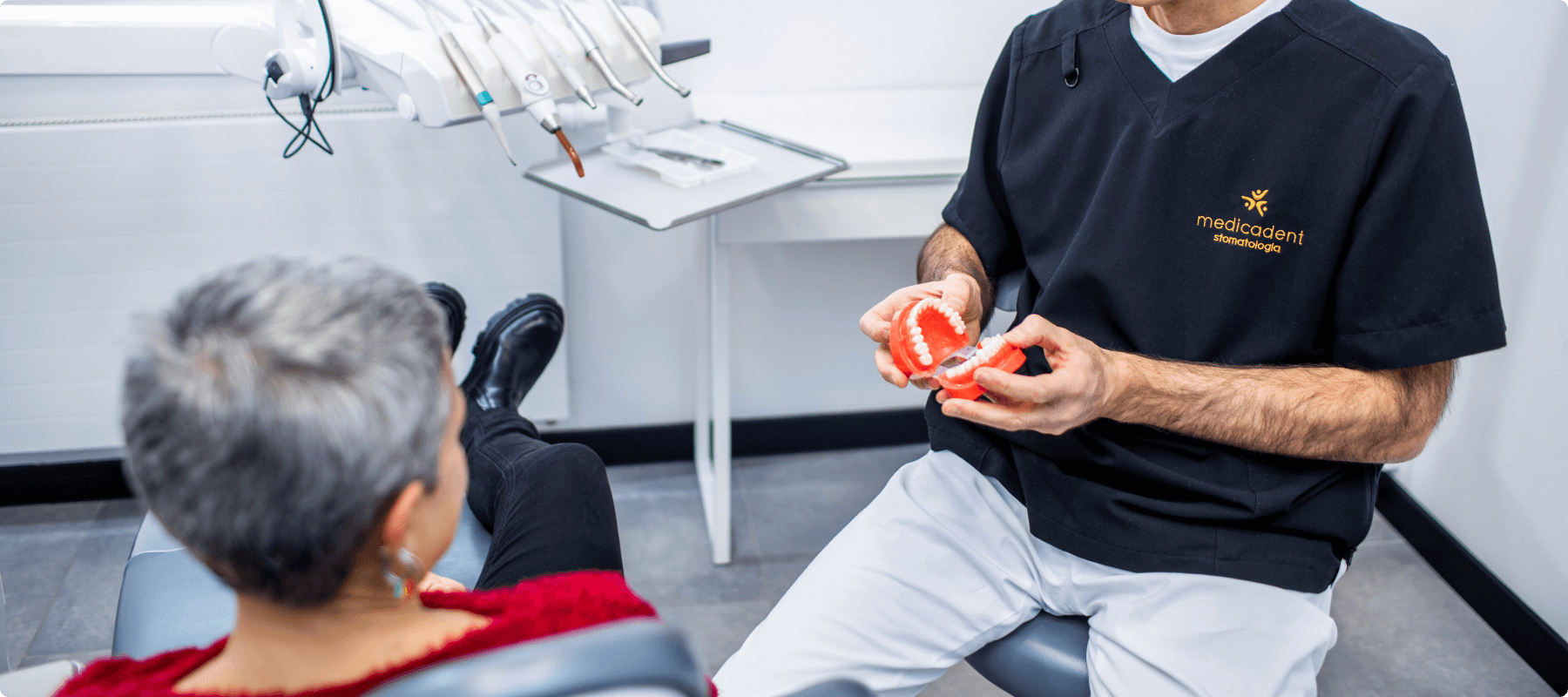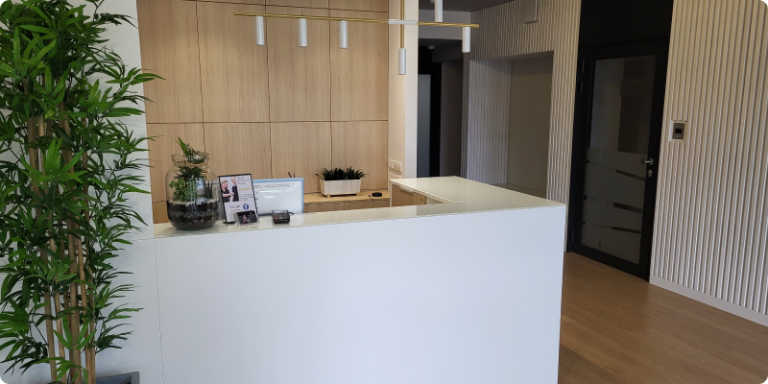Dental prosthetics is a field of dentistry that primarily deals with the diagnosis and treatment of diseases of the masticatory organ, as well as edentulism and malocclusion. Dental prosthetics focuses on the design, creation, and fitting of various types of dental prostheses, which replace natural teeth or restore their structure. In our clinic, we conduct comprehensive prosthetic treatment, apply the latest fixed and removable dental prostheses, and offer professional advice and dental care in terms of selection and fitting of dental prostheses, so our patients can enjoy a beautiful and healthy smile and full functionality of the oral cavity.
We have an advanced scanner for precise prosthetic treatment planning. Thanks to an individual treatment plan, which includes visualization of the future smile, our patients are assured that they will receive a unique solution tailored to their needs. Our scanner allows for precise planning of each element of prosthetics, guaranteeing a perfect result that will emphasize the uniqueness of each patient.
We assure that each visualization, as well as each prosthetic work, are unique and adapted to the individual characteristics of each of our patients.
Types of dental prostheses offered in the Medicadent clinic:
Crowns – Dental crowns are durable caps that cover damaged or weakened teeth, restoring their function and aesthetics. Modern dental crowns are characterized by excellent durability, precise fit, natural appearance, and biocompatibility. They are used when a tooth is significantly damaged, weakened, has large fillings, or requires aesthetic improvement.
Bridges – These are porcelain structures on a metal base or full ceramic. Such construction is based on the patient’s own teeth, called pillars. On these pillar teeth, prosthetic crowns are fitted, and dental gaps are filled with a span, fixed between the crowns of the pillar teeth. The use of prosthetic bridges is a good solution in case of loss of one or several teeth when there is no possibility of restoring teeth with fillings or prosthetic crowns.
Acrylic dentures – These are constructed from acrylic, constituting the plate and the body of the prosthesis, as well as artificial teeth. In our clinic we offer: ● Full dentures – for patients characterized by complete edentulism,
● Partial dentures – when a patient suffers from numerous dental gaps,
● Mini dentures – for patients missing one tooth or when there are so-called interdental gaps.
Skeletal dentures – This is a removable prosthesis made of metal. It is held in place by clasps, locks or slides, which provide its stability. This construction ensures durability despite the fact that it is thinner than acrylic. What’s more – it doesn’t damage the patient’s own teeth on which the denture is based. The skeletal denture takes up little space





